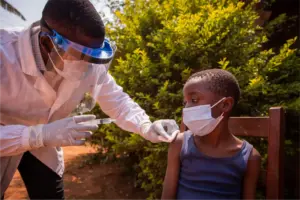
The United States has approved the world’s first twice-a-year injection to prevent HIV, offering a potential breakthrough in global efforts to curb transmission.
Developed by Gilead Sciences, the shot, called lenacapavir (to be marketed for prevention as Yeztugo), showed remarkable results in clinical trials, nearly eliminating new infections in people at high risk, outperforming current daily preventive pills.
“This really has the possibility of ending HIV transmission,” said Greg Millett, public policy director at amfAR, The Foundation for AIDS Research.
Also Read | China Approves First Stem Cell Therapy and Breakthrough HIV Drug
Lenacapavir offers six months of protection per injection, the longest of any existing HIV prevention option, and could appeal to those who struggle with daily pill regimens or face stigma.
Gilead already markets lenacapavir as Sunlenca for HIV treatment. Administered under the skin of the abdomen, the shots form a slow-release “depot” in the body. Patients must test negative for HIV before starting treatment and return for injections every six months.
In South Africa and Uganda, a study involving over 5,300 young women found zero HIV infections among those receiving lenacapavir, while about 2% of daily pill users became infected. Another study among gay men and gender-diverse people in multiple countries found similar protection.
However, cuts to the US public health programs, rising insurance hurdles, and slashed global HIV funding could limit uptake of the injections. Affordability is also a concern, as per HIV advocates. The list price in the US is $28,218 per year, with Gilead offering financial assistance but no guarantee of access for all. HIV prevention advocates also stress that the success of lenacapavir will depend on ensuring people return for their twice-yearly shots, which could prove challenging given cuts to outreach programs.
While lenacapavir represents a major step forward, UNAIDS chief Winnie Byanyima warned that if the drug remains unaffordable, “it will change nothing.”








